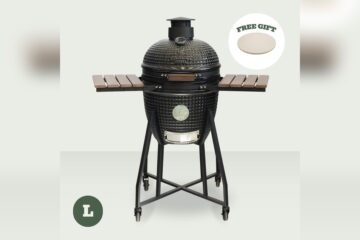Pizza sauce is typically good for up 5 to 7 days after opening. Pizza sauce can be a versatile condiment for various dishes, not just limited to pizza.
However, once you crack open a bottle or a jar of pizza sauce, you might wonder how long it can be safely stored and used. The good news is that pizza sauce can last a reasonable amount of time if stored properly.
Knowing the shelf life of pizza sauce is essential for ensuring food safety and avoiding potential health risks. We will discuss how long pizza sauce is good for after opening and some tips for storing it to extend its shelf life and maintain its quality. So, let’s dive in and find out!
How Long Is Pizza Sauce Good For After Opening? Discover The Surprising Truth!
Pizza sauce is an essential component of everyone’s favorite Italian dish. But have you ever wondered how long pizza sauce is good for after opening? Discover the surprising truth! In this blog post, we will delve into the factors that affect the shelf life of pizza sauce, understand food safety guidelines, and explore the importance of proper storage. Additionally, we will provide tips for extending the shelf life of pizza sauce signs of spoiled sauce and suggest some tasty recipes to use up any leftover sauce you may have.
Factors Affecting The Shelf Life Of Pizza Sauce
Regarding the shelf life of pizza sauce, several factors come into play.
Storage Conditions And Packaging
The way pizza sauce is stored, and its packaging incredibly impact its longevity. Pizza sauce typically comes in jars or cans, which protect against contaminants and spoilage. However, once opened, the sauce is exposed to air and microorganisms that can accelerate its deterioration.
Quality Of Ingredients Used
The quality of ingredients used in pizza sauce can also affect its shelf life. Fresh ingredients, such as ripe tomatoes, garlic, and herbs, contribute to a tastier sauce but may also decrease its longevity. Conversely, sauces made with high-quality canned tomatoes and dried herbs tend to have a longer shelf life.
Presence Of Preservatives
Some pizza sauces contain preservatives, such as citric acid or sodium benzoate, which help prolong their shelf life. These additives inhibit the growth of bacteria and mold, extending the sauce’s freshness. However, if stored properly, spices without preservatives may still have a decent shelf life.
Understanding Food Safety Guidelines
When storing pizza sauce, it is crucial to understand and follow food safety guidelines to prevent any potential health risks. These guidelines recommend specific storage conditions and time limits for food items, including pizza sauce.
The Importance Of Food Safety
Food safety is paramount, as consuming spoiled or contaminated food can lead to foodborne illnesses. Properly storing pizza sauce ensures its taste and quality and safeguards your health.
How Long Can You Safely Store Pizza Sauce?
The shelf life of pizza sauce after opening can vary depending on various factors. Generally, homemade pizza sauce should be consumed within 3 to 5 days when stored in the refrigerator. Meanwhile, store-bought pizza sauce can last 7 to 10 days if stored in the same conditions.
Tips For Properly Storing Pizza Sauce
To maximize the shelf life of pizza sauce, follow these tips:
- Store the sauce in an airtight container or its original packaging.
- Keep the sauce refrigerated at a temperature below 40°F (4°C).
- When scooping out the sauce, use clean utensils to prevent cross-contamination.
- Label the container with the open date to keep track of its freshness.
Signs Of Spoiled Pizza Sauce
It’s essential to recognize when your pizza sauce has gone wrong. Here are some signs of spoiled pizza sauce to watch out for:
Visual Indicators
Inspect the sauce for any discoloration, mold growth, or unusual texture. If you notice any of these visual indicators, it is best to discard the sauce.
Texture And Smell Changes
If the texture of your pizza sauce becomes slimy or grainy or if it emits an unpleasant odor, it is likely spoiled. When assessing your sauce’s freshness, trust your senses.
Common Mold Growth
Mold growth indicates that your pizza sauce has exceeded its shelf life. Do not consume sauce with visible mold, which can cause adverse health effects.
Extending The Shelf Life Of Pizza Sauce
If you find yourself with leftover pizza sauce and don’t want it to go to waste, consider these methods for extending its shelf life:
Refrigeration Versus Freezing
When it comes to preserving pizza sauce, refrigeration is a better option than freezing. Freezing can alter the texture and taste of the sauce, making it less desirable for future use. However, if you still choose to freeze the sauce, ensure it is stored in an airtight container to prevent freezer burn.
Vacuum Sealing And Jarring
Another way to extend pizza sauce’s shelf life is to seal or transfer it to sterilized jars. These methods create a more optimal storage environment, reducing the risk of spoilage.
Using Preservation Methods
If you have a surplus of pizza sauce, consider using preservation techniques like canning or making tomato paste. These methods can significantly extend the sauce’s shelf life and provide you with homemade ingredients for future recipes.
Tasty Recipes To Use Up Leftover Pizza Sauce
If you find yourself with leftover pizza sauce, here are two delicious recipes to make the most of it:
Margherita Pizza Roll-Ups
- Preheat the oven to 375°F (190°C) and prepare a baking sheet lined with parchment paper.
- Take soft tortilla wraps and spread a generous amount of pizza sauce on each.
- Sprinkle shredded mozzarella cheese and fresh basil leaves over the sauce.
- Roll up the tortillas tightly and place them on the baking sheet.
- Bake for 10-12 minutes or until the cheese melts and the edges golden brown.
- Serve your Margherita pizza roll-ups with extra pizza sauce for dipping!
Spaghetti with Pizza Sauce Meatballs
- Drain spaghetti after cooking according to package instructions.
- Mix ground meat with breadcrumbs, grated Parmesan cheese, egg, salt, pepper, and a spoonful of pizza sauce in a bowl.
- Roll the mixture into meatballs and cook in a skillet until browned on all sides.
- Add the remaining pizza sauce to the skillet and simmer the meatballs in the sauce for a few minutes.
- Combine the cooked spaghetti and the pizza sauce meatballs, tossing to coat the pasta.
- Garnish with grated Parmesan cheese and fresh basil, and enjoy this delightful twist on spaghetti!
So, the next time you find yourself with a jar of pizza sauce, remember to follow proper storage guidelines, examine signs of spoilage, and consider creative ways to use up any leftovers. By doing so, you’ll be ensuring that your pizza sauce stays delicious and safe to consume!

Credit: www.amazon.com
Conclusion
To ensure the freshness and flavor of your pizza sauce, it is essential to know its shelf life after opening. You can enjoy your sauce at its best by properly storing it in the refrigerator and using it within a week.
Remember, using expired or spoiled sauce can impact the taste and quality of your pizza. So, be cautious and make the most of your sauce to enhance your pizza experience.

As the author of the “Ultimate Pizza Guide: Recipes, Tips & Secrets Revealed,” I’m dedicated to sharing my love for pizza and empowering others to create delicious homemade pizzas with ease. Join me on a journey to uncover the secrets to perfecting your pizza game!



